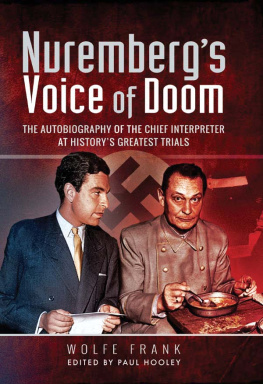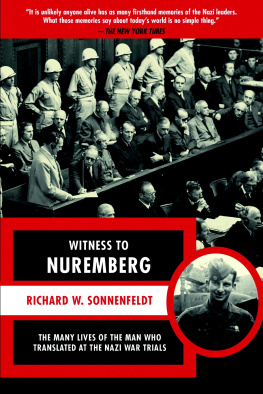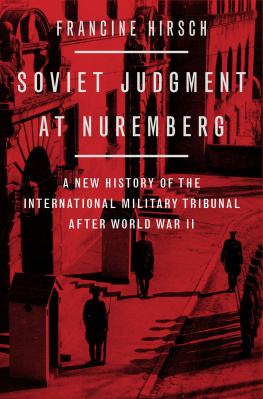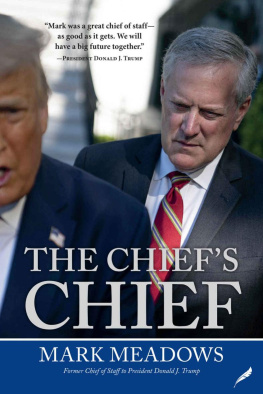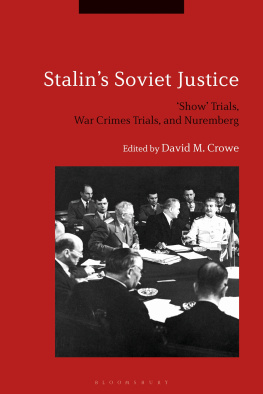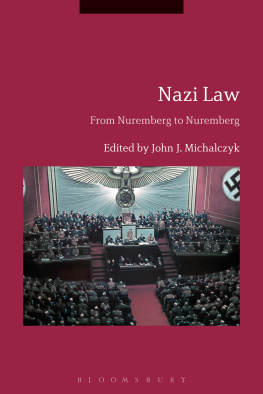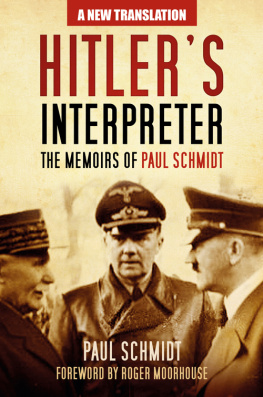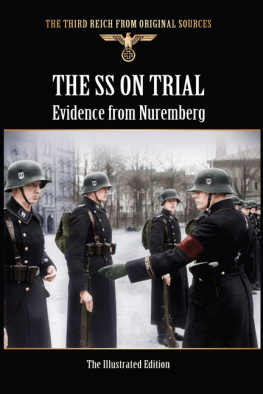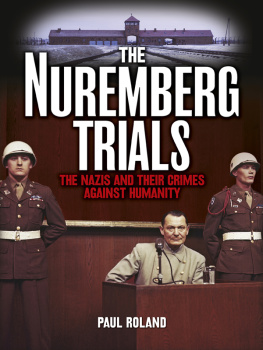Pagebreaks of the print version

NUREMBERGS VOICE of DOOM
THE AUTOBIOGRAPHY OF
THE CHIEF INTERPRETER
AT HISTORYS GREATEST TRIALS
DEDICATED TO THE MEMORY OF WOLFE FRANK
NUREMBERGS VOICE of DOOM
THE AUTOBIOGRAPHY OF
THE CHIEF INTERPRETER
AT HISTORYS GREATEST TRIALS
Wolfe Frank
Edited by Paul Hooley
NUREMBERGS VOICE OF DOOM
The Autobiography of the Chief Interpreter at Historys Greatest Trials
First published in Great Britain in 2018 by Frontline Books,
an imprint of Pen & Sword Books Ltd, Yorkshire - Philadelphia
Copyright Wolfe Frank and Paul Hooley
ISBN: 978-1-52673-751-9
eISBN: 978-1-52673-752-6
Mobi ISBN: 978-1-52673-753-3
The right of Wolfe Frank and Paul Hooley to be identified as Authors of this work has been asserted by them in accordance with the Copyright, Designs and Patents
Act 1988. A CIP catalogue record for this book is available from the British Library All rights reserved.
No part of this book may be reproduced or transmitted in any form or by any means, electronic or mechanical including photocopying, recording or by any information storage and retrieval system, without permission from the Publisher in writing.
Also by Paul Hooley
From Lockington to Gillingham
One Foot In The Grave
Pen & Sword Books Ltd incorporates the imprints of Pen & Sword Archaeology,
Atlas, Aviation, Battleground, Discovery, Family History, History, Maritime,
Military, Naval, Politics, Social History, Transport, True Crime, Claymore Press,
Frontline Books, Praetorian Press, Seaforth Publishing and White Owl
For a complete list of Pen & Sword titles please contact:
PEN & SWORD BOOKS LTD
47 Church Street, Barnsley, South Yorkshire, S70 2AS, UK.
E-mail:
Website: www.pen-and-sword.co.uk
Or
PEN AND SWORD BOOKS, 1950
Lawrence Roadd, Havertown, PA 19083, USA
E-mail:
Website: www.penandswordbooks.com
INTRODUCTION
In 2015 retired panel beater and paint sprayer Mike Dilliway was about to move home. During the course of clearing out his property he came across some six to eight cardboard boxes, a number of files and two briefcases crammed full of assorted papers mostly in English but some in German that he had not thought about for many years.
Mike had inherited this cache of documents from a gentleman he had befriended in the Wiltshire village of Mere where his business had been based and, not knowing quite what to do with them, had placed them in his loft for safe keeping. Mike recalled that his friend had often mentioned he had been involved as a translator and an interpreter at the trials of the Nazi war criminals in Nuremberg, and that he had also once been a successful businessman. Illness and some unfortunate involvements in both his professional and personal life had however reduced him to a low ebb physically and financially and this had led him to take his own life in 1988.
So impoverished had Mikes friend become during the period leading up to his death that he had been forced to approach his local authority for accommodation, furniture and financial support. He was also overdrawn at the bank and a utility supplier was threatening to take him to court over an unpaid debt. There was nothing of value amongst the chattels of the deceased and there was no money left within his estate. Rather than see his friend suffer the indignity of a paupers burial Mike Dilliway settled his affairs, paid the funeral expenses, distributed what little furniture there was to local charities and consigned the aforementioned documents to his attic where they laid undisturbed for over a quarter of a century.
Needing to make a decision on what to do with the collection and not knowing quite what he had Mike asked me (as a writer he knew who had an interest in historical and military matters) if I would take a look at the material to see if there was anything there that might be of importance.
I inwardly shuddered when I took delivery of the consignment, not just because of the sheer volume of paperwork involved but because it was in no particular order. I was at a loss as to know where to start.
Start I did however and twelve months later after having sorted, resorted, catalogued, assessed, researched and checked several thousand sheets of data I had a complete picture of the life of Wolfe Frank, Chief Interpreter at the Nuremberg Trials. Whilst my heart may have initially sunk at the thought of the task ahead of me, my pulse quickened with almost every piece of paper I investigated and by the end of my researches that same heart had soared with excitement at the realisation of the important discoveries I had made and the knowledge I had acquired knowledge I felt compelled to share with a wider audience.
This book therefore is the result of those discoveries. It consists of a posthumous autobiography of the first half of Wolfe Franks astonishing life that stands up to the closest scrutiny plus a potted biography of his later days (based on his memoirs) and further added information that chronicles the life, times and involvements of a brave, dedicated and gifted man whose exploits and achievements should not be allowed to fade into obscurity.
Franks participation throughout the trials at Nuremberg places him in the quite unique position of having been totally immersed in the proceedings from the very first day of the war crimes investigations he was asked to translate the then only known piece of evidence. He then became one of the most active players in the forensic and interrogations processes and the setting up and pioneering of the worlds first ever system of simultaneous interpretation (a triumph in itself). Once the International Military Tribunal () started, Frank became a central figure in all stages of the trials. He interpreted the Tribunals opening remarks, was used more than any other interpreter during the ten month duration of the IMT, and then finally brought proceedings to a close by informing the defendants of their fate a duty, simultaneously listened to by an estimated radio audience of four hundred million.
It is true to say therefore that the first and last words the defendants heard in their own language at Nuremberg were uttered by Wolfe Frank, a man they like the Tribunal, the prosecutors and their own counsels trusted implicitly and for whom they had the highest possible regard and respect.
These memoirs add substantially to what is already known about the trials and include further important insights about what went on behind the scenes. They include details of personal encounters with defendants Goering, Ribbentrop, Keital, Kaltenbrunner, Speer, et al. as seen through the eyes of one (perhaps the only one) who was involved at every stage of what has been described as having been the greatest trial in history.
Within his manuscript Wolfe states: I had been involved in the writing of a chapter of human history that would be read, talked about and remembered forever. I had been more totally and decisively immersed in recording the horrors of the war than most of the millions who had fought in it.

